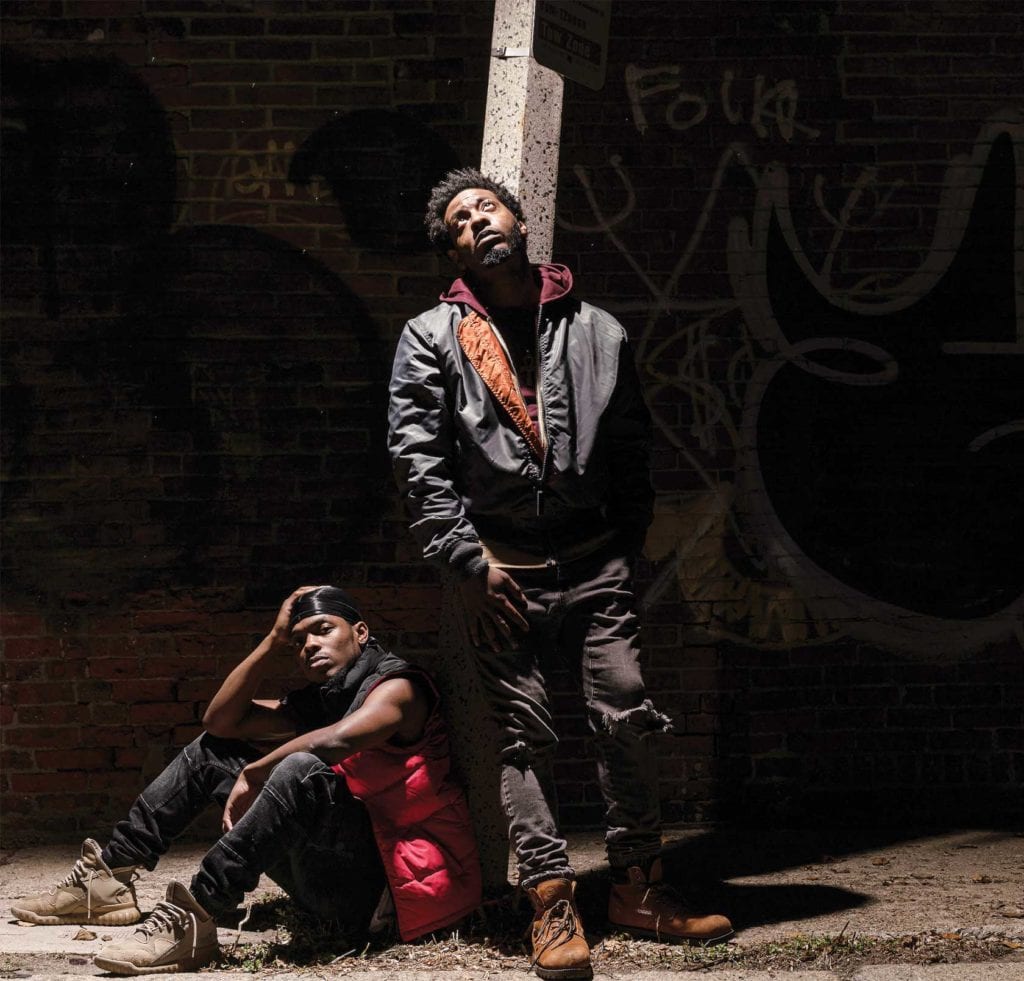
On Jan. 3, two ordinary black boys will take the stage at the Calderwood Pavilion in the South End and start a revolution. “Pass Over,” presented by Speakeasy Stage Company and Front Porch Arts Collective, Boston’s black theater company, blends joy and pain in a poignant, contemporary piece about young black men.
The show, running through Jan. 25, features characters Moses (Kadahj Bennett) and Kitch (Hubens “Bobby” Cius) hanging out on a street corner, talking about their hopes and dreams and the societal challenges standing in the way of achieving them.

Hubens “Bobby” Cius and Kadahj Bennett in SpeakEasy Stage’s production of Pass Over. PHOTO: NILE SCOTT STUDIOS
The play’s absurdist style (à la “Waiting for Godot”) presents very real systemic problems in an often hilarious, often terrifying format. “To see something that’s in the deep pockets of black culture that’s flipped up into the absurd, I think that’s really awesome,” says Bennett. “It’s hard for people to see situations that they are close to or a part of, but if you put it in a different context, it’s easier to digest. Plus, it’s satire and it’s hilarious and the sugar helps the medicine go down.”
Written by Antoinette Nwandu, the play was first performed in May 2017 and was adapted into a film by Spike Lee in 2018 for a premiere at the Sundance Film Festival. Though the content is contemporary and rooted heavily in the present day police violence against people of color, the material also draws on the historical experiences of black people, the centuries of oppression that have led to this moment.
But “Pass Over” is not all heavy conversations. Tonal balance is key here, and director Monica White Ndounou strikes a delicate balance between the pain and struggle and the joy and hilarity inside young boys. “Through enslavement, emancipation, Jim Crow, the Civil Rights movement — every generation, we’re in another struggle,” says Ndounou. “But even in that struggle, we find ways to access joy. And to identify ways in which we do have power.”
Cius says the fun and humor of the show were what drew him to it. As the youngest of six, Cius identified with Kitch, a character with a younger-brother quality to him, both nagging and unendingly loyal. “The experiences of men of color, black men in particular, can be very similar because of our skin color. I may not have gone through specific issues that Kitch and Moses go through, but I certainly know people who have, and I understand that it could happen to me any day,” says Cius.
Perhaps most striking about “Pass Over” is that it shows the power of the ordinary. Nwandu describes Moses and Kitch as being two ordinary black boys. They’re not prodigies, they’re not performers, they don’t have hoop dreams; they’re just trying to live. And they shouldn’t need to be exceptional to do that.
Director Ndounou stresses that she’s tried to create a safe space for the actors to perform this piece and for the audience members of color to experience it. But she also hopes it will strike a chord. “The Boston area is more segregated in some ways than many places I’ve lived in other areas of the country,” says Ndounou. “I would hope that audiences coming into this play will reflect on how this story is connected to the larger narrative about what this country is and how it treats all of its people.”







